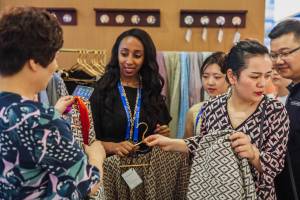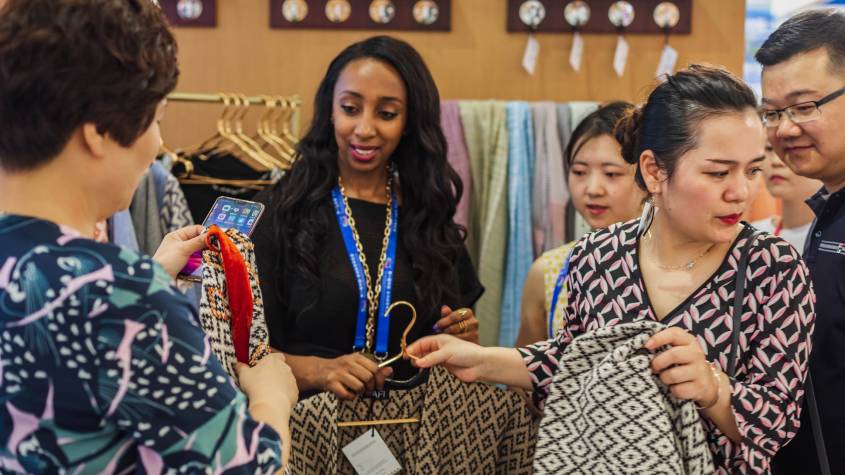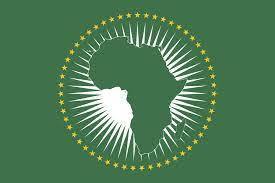OP-ED | Can African brands disrupt the Chinese market? By Development Reimagined
Focusing on increasing value-added trade is pivotal to levelling out the trade imbalance, with the Chinese market offering many opportunities for African brands.

Over the past few decades, it has become increasingly clear that ‘aid’ is not the answer to fast-tracking Africa’s development. Solving economic and social challenges requires much more than financial aid; it requires structural change – in relation to trade and investment.
To this end, China is fast becoming a prominent development partner for many African countries, through infrastructure investment and other varied development cooperation mechanisms. Cooperation with Chinese partners has enhanced the continent’s development, contributing towards the realisation of specific Sustainable Development Goals (SDGs) and supporting countries move closer towards the African Union’s 2063 vision.
Trade is also a crucial component of the Africa-China relationship, and since 2008, China has been the continent’s largest trading partner! Nevertheless, there is an acute trade imbalance in China’s favour for most African countries, as 40 African countries have a significant trade deficit with China.
This trade imbalance dampens potential job creation, foreign exchange generation and value-chain development opportunities across the continent, limiting poverty alleviation potential. A more sustainable and, in China’s own terms, ‘mutually beneficial’ trade is therefore necessary.
Focusing on increasing value-added trade is pivotal to levelling out the trade imbalance, with the Chinese market offering many opportunities for African brands. First off, China’s consumer market is enormous! The country is home to 18% of the global population (1.4 billion), with the domestic market forecasted to expand by 12% every year as domestic incomes continue to rise.
Chinese consumers are also shifting towards purchasing ethical and sustainably-produced products. According to a recent McKinsey report, Chinese consumers lead the world in researching brand and product choices before buying, with over 70% of survey respondents stating they had spent more time and money on eco-friendly products throughout the pandemic.
Yet, many African businesses are either underprepared or not aware of the opportunities the Chinese market offers. Indeed, there is a need for strategic support to navigate the complex Chinese market, which can be difficult to understand given the opaqueness of the country’s business environment. Subsequently, most African companies look to enter the US, where consumption is rising by 2% every year, compared to China where consumption is increasing by 16%, annually.
On the flip side, here in China, the perception of ‘African products’ is very much outdated, with little awareness of the diverse, high-quality and luxury African brands that currently exist! Most consumers tend to think of Africa as a monolith – rich in natural resources, namely oil and minerals. This narrative needs to shift towards shining a light on Africa’s creative side to generate demand for high-end, finished African products.
This is precisely why Development Reimagined launched our first flagship, Africa Reimagined, to address challenges through directly supporting African brands enter the Chinese market. Our experience at the 2019 China-Africa Economic and Trade Expo (CAETE), with our interactive “Africa Reimagined” exhibition, clearly demonstrated that Chinese consumers do have an appetite for high-quality, luxury African products. During the expo, our booth attracted thousands of Chinese and international visitors with the brand products flying off the shelves. Subsequently, 90% of our products sold out while numerous partnership and distribution links were fostered.
We are now doing it again! The second CAETE expo is holding from September 26th to 29th, and this year, we are introducing ten exciting, innovative African SME brands to the Chinese market. These brands cut across various sectors – from footwear and fashion to jewellery and beverages – who come from varied countries, namely Ethiopia, Kenya, Uganda, Rwanda, Tanzania and South Africa.
All the brands have a strong sustainability component in their business models, with strong commitments to cutting poverty and promoting ethical business practices through their supply chains, making them a core component within Africa’s structural transformation.
Take Kazi Yetu, a Tanzanian organic tea brand that employs marginalised artisanal women, most of whom are single mothers. Beyond direct employment, the brand reinvests a proportion of its profits towards supporting over 2,000 Tanzanian farmers through training programmes. Their tea is sustainably produced and packaged using biodegradable pyramid bags to keep environmental impacts to a minimum.
There is a growing demand for unique, foreign tea in China, with the tea market valued at over USD10 billion. Kazi Yetu can reach thousands of new customers through e-commerce and retail channels by tapping into this demand. Other examples of the brands we support include 1000 Hills Distillery in Rwanda which sources all their raw materials locally to support other Rwandan SMEs and turns their methanol by-product into a low-cost mosquito repellent.
While further steps still need to be taken to balance Africa-China trade at the policy level regarding tariffs, entry requirements, and so on, we are nevertheless excited to see what new opportunities arise for African brands from the second series of the CAETE to support the continents overall structural transformation.
This article was produced by Development Reimagined; a pioneering, independent, African-led International Development consultancy with its headquarters in China. We are a diverse team of development, diplomacy, environmental and public relations leaders around the globe with a mission to deliver sustainable development and poverty reduction in a dynamic and complex world. Our approach is bespoke, rigorous and holistic, and our clients include governments, civil society organisations and businesses small and large, also from all sides of the world. We have expertise that covers the full spectrum of sustainable development and poverty reduction















